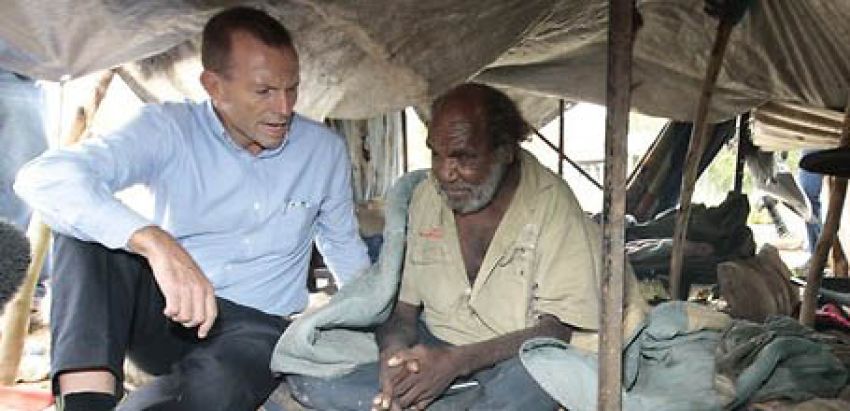
At a major speech in parliament on February 12, Prime Minister Tony Abbott said the government was “serious about Aboriginal policy … no less serious than it is about stopping the boats”.
He pledged to close the gap between Indigenous and non-indigenous outcomes in health, education and employment.
Abbott spoke about his experience volunteering in remote Indigenous communities and promised to spend a week in East Arnhem Land with government officials this year. “It has become a personal mission to help my fellow Australians to open their hearts, as much as to change their minds, on Aboriginal policy.
“After 226 years of intermittent interest at most, why shouldn’t Aboriginal people finally have the Prime Minister’s undivided attention for seven days?”
He touched on some of the serious issues facing Indigenous people, such as the higher rates of child mortality. He acknowledged that there had been “almost no progress in closing the life expectancy gap between Aboriginal and other Australians — which is still about a decade”.
But Abbott did not make any proposals for tackling these problems, instead choosing to focus the rest of his speech on taking action to combat school truancy and boost the number of police stationed in communities.
“One of the worst forms of neglect is failing to give children the education they need for a decent life,” he said. “That’s why every state and territory has anti-truancy laws. That’s why the former government, to its credit, tried to quarantine welfare payments for families whose children weren’t at school.”
Abbott spoke about the 40 new truancy officers employed in remote communities as part of a $30 million federal government program.
He did not mention that his government cut $1.6 million in funding in November for a school bus service that transported students from town camps to five schools in Alice Springs.
Abbott ended his speech on a hopeful note, saying “for every one step backwards we are also taking two steps forward”.
“To give just one example: On every ministerial visit to the APY lands [in northern South Australia], I used to complain that there were just eight police for 3000 people spread over an area the size of Scotland — and that none of them lived in any of the places where they were needed.
“Six years later, these are hardly model communities, but every substantial settlement has a permanent police presence — thanks to the good work of the South Australian Labor government — because this was an objective beyond politics.”